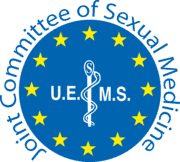The structure of Committees and roles within committees may vary according to their purpose and length of operation. The traditional structure includes the Chair (or President), Treasurer and Secretary, each with defined and distinctive roles. These are generally supplemented by general committee members or portfolio representatives.
Role of the President (Chair)
Charged with providing leadership and direction to the committee, the President is responsible for ensuring that the committee fulfils its responsibilities for the governance and success. The Presidents is generally the spokesperson and should work to maintain key relationships within and outside the committee.
Desirable attributes
The President should:
- be well informed of all organisation activities and able to provide oversight
- be a person who can develop good relationships internally and externally
- be forward thinking and committed to meeting the overall goals of the committee
- have a good working knowledge of the committee constitution, rules and duties of office bearers
- be able to work collaboratively with other committee members
- be a competent public speaker
Specific duties include but are not limited to:
- Chair committee meetings ensuring that they are run efficiently and effectively
- Act as a signatory for the committee in all legal purposes and financial purposes
- Regularly focus the committee’s attention on matters of governance that relate to its own structure, role and relationship
- Work with the committee to ensure:
1. The necessary skills are represented on the committee and that a succession plan is in place to help find new committee members when required
2. Goals and relevant strategic and business plans are developed in order to achieve the goals of the committee.
- Serve as a spokesperson when required
- Communicate regularly and systematically with the representatives of the UEMS
- Assist in the development of partnerships with other boards and organisations that are relevant to the goals of the committee.
Role of the Treasuer
The Treasurer is responsible for the financial supervision of the MJCSM to allow the committee to provide good governance. The Treasurer is the chief financial management officer whose tasks include the preparation of annual budgets, planning for the organisations financial future and monitoring the organisations revenue and expenditure. It is desirable that the treasurer is well organized and possesses a level of financial expertise.
Desirable attributes
- Good organisational skills
- Has some financial expertise
- Ability to maintain accurate records
- Honest/trustworthy
- Good communication skills
Specific duties include but are not limited to
- Provide advice to the committee in their management of the MJCSM finances
- Administer all financial affairs of the MJCSM
- Lead the annual budget process and ensure an appropriate annual budget is provided to the committee for approval
- Ensure development and committee review of financial policies and procedures
- Support any required auditing processes
- Receipt of all incoming monies
- Bank all monies received
- Pay all accounts
- Maintain accurate records of all income and expenditure
- Ensure that all receipts and payments concur with bank deposits and withdrawals
- Be a signatory on committee account
Role of Secretary
The Secretary is responsible for the documentation and communication of the activities of the committee. The secretary is the primary administration officer of the committee and provides the links between the committee, members and outside agencies. The Secretary should be a good communicator, maintain confidentiality on relevant matters and have the ability to delegate tasks and supervise others. Amongst the Secretary’s tasks are to prepare agendas, control and distribute minutes, receive and disseminate correspondence to and from the committee etc.
Desirable attributes
The Secretary should:
- be organized
- have computer skills
- be able to keep confidential matters confidential.
Specific duties include but are not limited to:
- Maintain records of the committee and ensure effective management records
- Manage minutes of committee meetings, including ensuring the minutes Secretary does so, and ensuring minutes are distributed to members shortly after each meeting
- Development of the agenda in consultation with other committee members and distribution prior to the meeting
- Is sufficiently familiar with documents to note applicability during meetings
- Is responsible for ensuring that accurate and sufficient documentation exists to meet legal requirements
- Enable and authorise people to help with the committee’s business.
- Ensure that the records of the committee are maintained as required by law and made available when required by authorised persons. These records may include founding documents, lists of committee members, committee meeting minutes, financial reports, and other official records
- Provide an up-to-date copy of the constitution and bylaws at all meetings.
- Ensure that proper notification is given of committee meetings as specified in the bylaws
- Manage the general correspondence of the committee except for such correspondence assigned to others
- Help and lead the committee in providing systematic communication from the committee to relevant stakeholders
